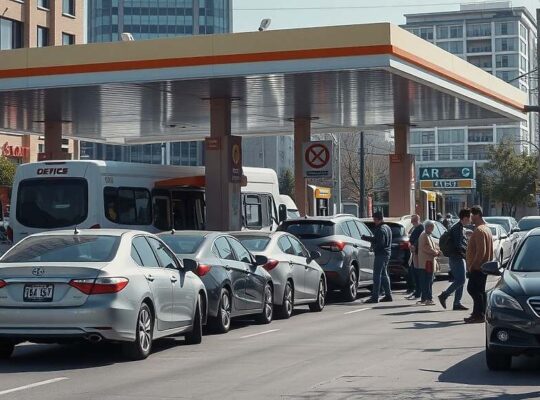The escalating crisis in Germany’s rail network is increasingly forcing taxi drivers to shoulder the burden of widespread delays and cancellations, a situation exacerbating anxieties about the long-term viability of the taxi industry itself. According to Michael Oppermann, Managing Director of the German Taxi and Rental Car Association, the volume of rides for stranded passengers is rising steadily, a trend the association anticipates will continue.
The most significant spikes in demand are occurring in major transport hubs like Cologne and Hannover, locations strategically important due to their function as critical transfer points. Oppermann emphasized that the increased taxi utilization isn’t necessarily indicative of particularly severe failures in those cities, but rather a consequence of their importance within the national rail system.
While the digital vouchers issued by Deutsche Bahn to compensate passengers during disruption represent an individual boon for taxi drivers, the association warns that this seemingly positive impact poses a systemic threat to the industry. These infrequent, long-distance fares can be lucrative for individual drivers, akin to a small Christmas bonus, but the overall business model remains vulnerable. “It’s a bittersweet advantage” Oppermann stated.
The situation underscores a deeper, mounting concern: the unreliability of Germany’s rail infrastructure is directly damaging the taxi business. Beyond the immediate financial strain, the association highlights a potentially irreversible shift in consumer behavior. As passengers increasingly question the dependability of train travel, the likelihood of opting for private vehicles rises, representing a far more dangerous competitor to the taxi industry. The core fear is a disintegration of the existing mobility chain, with passengers bypassing public transport altogether.
The German Taxi and Rental Car Association maintains a national framework agreement with Deutsche Bahn, facilitating the direct billing of taxi fares through digital vouchers. However, the continued reliance on this system, born out of necessity in the face of rail failures, only serves to emphasize the fragility of the industry and the precarious state of Germany’s public transportation. The situation demands a fundamental reassessment of rail infrastructure investment and a strategic approach to securing the future of mobility options for German citizens.












